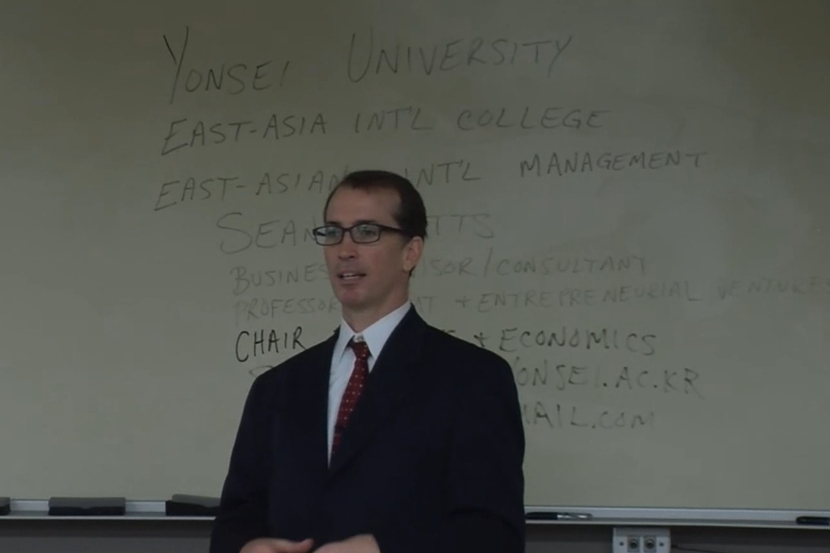Millions of people flee their homes due to political, economic, or social issues, with asylum seekers often being involuntarily forced to cross borders. Rising anti-refugee sentiment hinders the integration of these displaced individuals, underscoring...
http://chineseinput.net/에서 pinyin(병음)방식으로 중국어를 변환할 수 있습니다.
변환된 중국어를 복사하여 사용하시면 됩니다.
- 中文 을 입력하시려면 zhongwen을 입력하시고 space를누르시면됩니다.
- 北京 을 입력하시려면 beijing을 입력하시고 space를 누르시면 됩니다.
Welcoming the Worthy : Moral and Economic Deservingness Perceptions in Attitudes towards Asylum Seekers = 한국인은 어떤 망명 신청자를 받아들일까? 도덕적 및 경제적 요인이 망명신청자 적격성 인식에 미치는 영향
한글로보기https://www.riss.kr/link?id=T17109879
- 저자
-
발행사항
서울 : 서울대학교 대학원, 2024
-
학위논문사항
학위논문(석사) -- 서울대학교 대학원 , 정치외교학부(외교학전공) , 2024. 8
-
발행연도
2024
-
작성언어
영어
- 주제어
-
DDC
327
-
발행국(도시)
서울
-
형태사항
vi, 96 ; 26 cm
-
일반주기명
지도교수: Jong Hee Park
-
UCI식별코드
I804:11032-000000185827
- DOI식별코드
- 소장기관
-
0
상세조회 -
0
다운로드
부가정보
다국어 초록 (Multilingual Abstract)
Millions of people flee their homes due to political, economic, or social issues, with asylum seekers often being involuntarily forced to cross borders. Rising anti-refugee sentiment hinders the integration of these displaced individuals, underscoring the need to understand the determinants of public opinion. In 2018, over 500 Yemeni asylum seekers landed on Jeju Island, sparking a national debate and anti-refugee protests in South Korea. Public discourse frequently questioned the genuineness of these asylum seekers, with many labeling them as “fake refugees”. This study investigates how various characteristics of asylum seekers shape public perceptions of their deservingness of asylum. We argue that economic and moral judgments, as well as perceptions of cultural threats, influence public preferences regarding the acceptance of asylum seekers. Our experimental data from South Korea (n = 2169) reveals a preference for skilled asylum seekers with families and visual representations. Additionally, ethno-cultural characteristics of asylum seekers are considered more significant when evaluating their admission at the neighborhood level compared to the country level. This combination of economic and moral deservingness, along with cultural concerns, indicates a compassionate pragmatism among South Koreans in selecting whom to admit as asylum seekers. The findings underscore the necessity of adopting a multidimensional framework that integrates economic, moral, and cultural considerations, rather than exclusively focusing on self-interest-based economic concerns, to more comprehensively understand public behavior towards asylum seekers.
국문 초록 (Abstract)
정치적, 경제적, 사회적 문제로 인해 수백만 명의 사람들이 고향을 떠나 강제로 국경을 넘는 망명 신청자들이 늘고 있다. 반난민 정서의 증가는 이러한 이주민들의 통합을 방해하며, 이는 대...
정치적, 경제적, 사회적 문제로 인해 수백만 명의 사람들이 고향을 떠나 강제로 국경을 넘는 망명 신청자들이 늘고 있다. 반난민 정서의 증가는 이러한 이주민들의 통합을 방해하며, 이는 대중 의견 형성의 결정 요인을 이해하는 필요성을 강조한다. 2018년, 500명 이상의 예멘 망명 신청자들이 제주도에 도착하면서 대한민국에서는 전국적인 논쟁과 반난민 시위가 촉발되었다. 공론에서는 이들 망명 신청자들의 진정성을 의심하며 많은 이들이 그들을 '가짜 난민'으로 칭했다. 본 연구는 다양한 망명 신청자들의 특성이 그들의 망명 자격에 대한 대중의 인식에 어떻게 영향을 미치는지 조사한다. 경제적 및 도덕적 판단, 그리고 문화적 위협 인식이 망명 신청자 수용에 대한 대중의 선호에 영향을 미친다고 주장한다. 대한민국에서 실시한 실험 데이터(n = 2169)는 가족과 시각적 재현이 있는 숙련된 망명 신청자를 선호하는 경향을 보여준다. 추가로, 망명 신청자들의 민족-문화적 특성은 국가적 차원보다 지역 사회 차원에서 그들의 수용을 평가할 때 더 중요하게 고려된다. 경제적 및 도덕적 자격과 문화적 우려가 결합된 이러한 결과는 망명 신청자 수용에 있어 한국 국민들이 보여주는 연민적 실용주의를 나타낸다. 이 연구 결과는 경제적 이익에 기반한 자기이해만이 아닌, 경제적, 도덕적, 문화적 고려를 통합하는 다차원적 틀을 채택하는 필요성을 강조하며, 이는 망명 신청자에 대한 대중의 행동을 더 포괄적으로 이해하는 데 기여한다.
목차 (Table of Contents)
- Chapter 1. Introduction 1
- Chapter 2. Asylum Seekers, Refugees and the Global Refugee Crisis 8
- Chapter 3. Determinants of Public Attitudes 14
- 3.1 Self-Interest Concerns 15
- 3.2 Common-Interest Concerns 17
- Chapter 1. Introduction 1
- Chapter 2. Asylum Seekers, Refugees and the Global Refugee Crisis 8
- Chapter 3. Determinants of Public Attitudes 14
- 3.1 Self-Interest Concerns 15
- 3.2 Common-Interest Concerns 17
- 3.3 Deservingness Perceptions 20
- Chapter 4. South Korean Public Perceptions of Newcomers 25
- 4.1 Refugees and Asylum Seekers 26
- Chapter 5. Theoretical Argument 32
- 5.1 Economic Deservingness 33
- 5.2 Moral Deservingness 35
- 5.3 The Juncture of Economic and Moral Deservingness 39
- 5.4 Neighborhood Effect on Cultural Concerns 40
- Chapter 6. Research Design and Data 44
- 6.1 Vignette Experiment 44
- 6.2. Nimby Experiment 55
- 6.3. Data 58
- Chapter 7. Results 60
- 7.1 Vignette Experiment 60
- 7.2 Subgroup Analysis 69
- 7.2.1 Gender 69
- 7.2.2 Political Ideology 71
- 7.2.3 Education Level 72
- 7.2.4 Income Level 73
- 7.2.5 Summary of the Subgroup Analyses 74
- 7.3 NIMBY Experiment 75
- Chapter 8. Conclusion 79
- Appendices 83
- Bibliography 86
- Abstract in Korean 96












